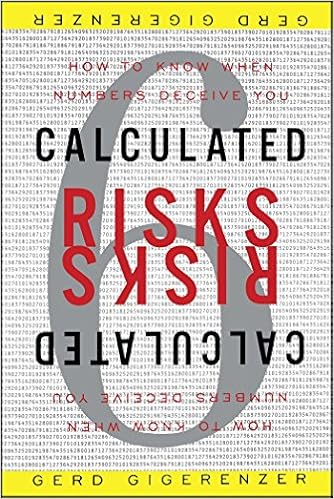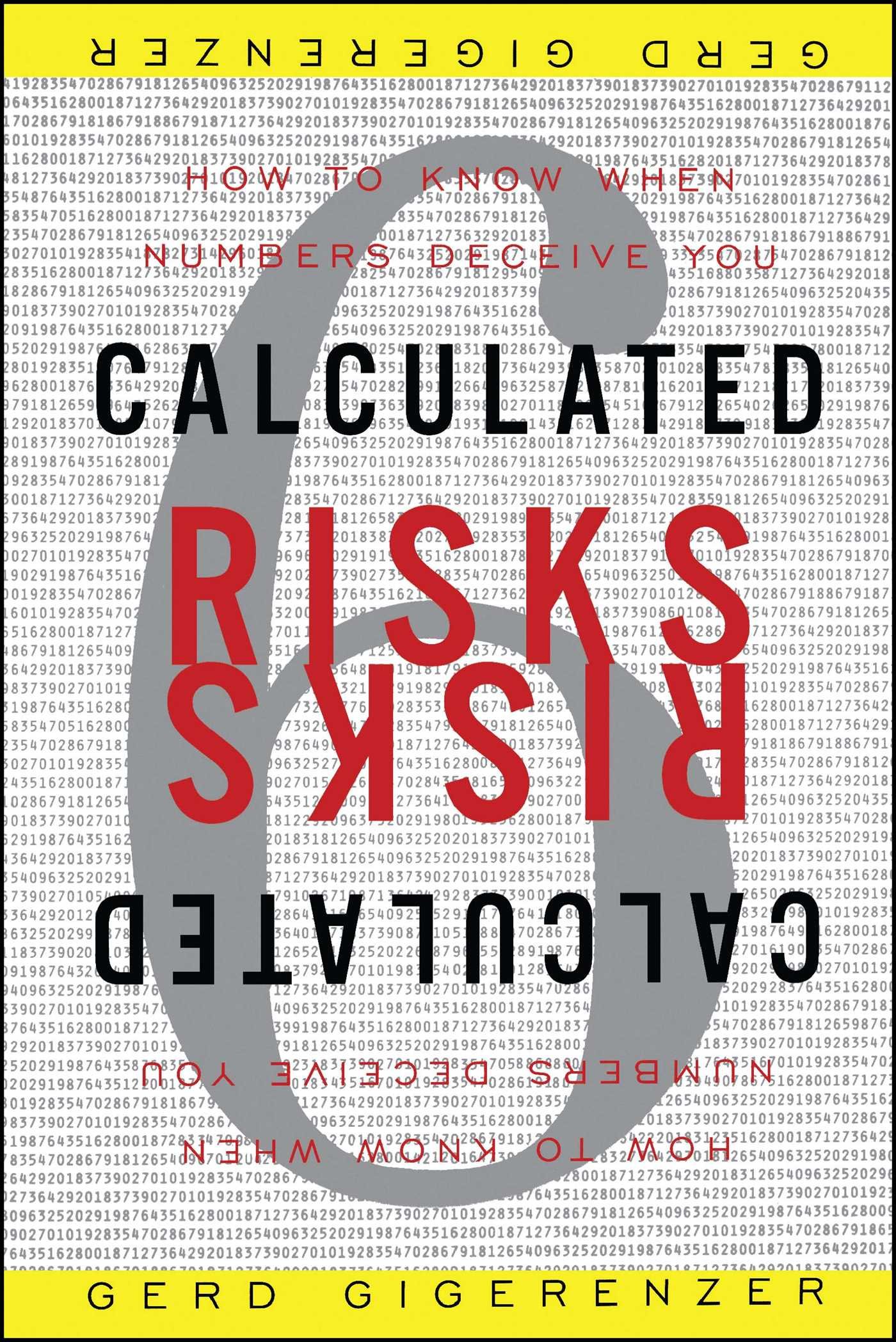
Special Edition Calculated Risks: How to Know When Numbers Deceive You with FREE EASY Reading Download Now!

 4,5
4,5

Related Ebook :
Download PDF Schaum's Outline of Electric Circuits, seventh edition (Schaum's Outlines) with Free EASY Reading Download Now!
Download Audio Book CDL Class A Pre-Trip Inspection Study Guide: Pass Your Pre-Trip Inspection Test, The First Time. In This Word for Word, Easy to Remember Guide! with FREE PDF EDITION Download Now!
Download Best Edition Statistics for K-8 Educators with FREE MOBI EDITION Download Now!
Download PDF Competing Against Luck: The Story of Innovation and Customer Choice with FREE MOBI EDITION Download Now!
Download Audio Book McGraw-Hill Education 4 HESI A2 Practice Tests, Third Edition (McGraw-Hill Education HESI A2 Practice Test) with FREE EASY Reading Download Now!
Download Special Edition Culturally Responsive Teaching: Theory, Research, and Practice (Multicultural Education Series) with FREE MOBI EDITION Download Now!
Download Audio Book Assessment in Health Professions Education with Free PDF EDITION Download Now!
Download PDF McGuffey's Eclectic Readers - Complete Set (Illustrated) with Free PDF EDITION Download Now!
Download Best Edition Integrating Educational Technology into Teaching (2-downloads) with FREE EASY Reading Download Now!
Download Special Edition Bright Kids Who Can't Keep Up: Help Your Child Overcome Slow Processing Speed and Succeed in a Fast-Paced World with Free MOBI EDITION Download Now!
Special Edition Calculated Risks: How to Know When Numbers Deceive You with FREE EASY Reading Download Now!
At the beginning of the twentieth century, H. G. Wells predicted that statistical thinking would be as necessary for citizenship in a technological world as the ability to read and write. But in the twenty-first century, we are often overwhelmed by a baffling array of percentages and probabilities as we try to navigate in a world dominated by statistics.Cognitive scientist Gerd Gigerenzer says that because we haven't learned statistical thinking, we don't understand risk and uncertainty. In order to assess risk -- everything from the risk of an automobile accident to the certainty or uncertainty of some common medical screening tests -- we need a basic understanding of statistics.Astonishingly, doctors and lawyers don't understand risk any better than anyone else. Gigerenzer reports a study in which doctors were told the results of breast cancer screenings and then were asked to explain the risks of contracting breast cancer to a woman who received a positive result from a screening. The actual risk was small because the test gives many false positives. But nearly every physician in the study overstated the risk. Yet many people will have to make important health decisions based on such information and the interpretation of that information by their doctors.Gigerenzer explains that a major obstacle to our understanding of numbers is that we live with an illusion of certainty. Many of us believe that HIV tests, DNA fingerprinting, and the growing number of genetic tests are absolutely certain. But even DNA evidence can produce spurious matches. We cling to our illusion of certainty because the medical industry, insurance companies, investment advisers, and election campaigns have become purveyors of certainty, marketing it like a commodity.To avoid confusion, says Gigerenzer, we should rely on more understandable representations of risk, such as absolute risks. For example, it is said that a mammography screening reduces the risk of breast cancer by 25 percent. But in absolute risks, that means that out of every 1,000 women who do not participate in screening, 4 will die; while out of 1,000 women who do, 3 will die. A 25 percent risk reduction sounds much more significant than a benefit that 1 out of 1,000 women will reap.This eye-opening book explains how we can overcome our ignorance of numbers and better understand the risks we may be taking with our money, our health, and our lives.
At this time of writing, The Mobi Calculated Risks: How to Know When Numbers Deceive You has garnered 9 customer reviews with rating of 5 out of 5 stars. Not a bad score at all as if you round it off, it’s actually a perfect TEN already. From the looks of that rating, we can say the Mobi is Good TO READ!
Special Edition Calculated Risks: How to Know When Numbers Deceive You with FREE EASY Reading!
Related Ebook :
Download Mobi Schaum's Outline of Basic Electricity, Second Edition (Schaum's Outlines) with FREE PDF EDITION Download Now!
Download Audio Book Crisis Intervention Strategies with Free PDF EDITION Download Now!
Download Special Edition Philosophies on Self-Discipline: Lessons from History’s Greatest Thinkers on How to Start, Endure, Finish, & Achieve (Live a Disciplined Life Book 7) with Free PDF EDITION Download Now!
Download Audio Book Growing up with Three Languages: Birth to eleven (Parents' and Teachers' Guides Book 11) with Free EASY Reading Download Now!
Download Audio Book Passive Income Freedom + Influencer Fast Track + Online Marketing Boot Camp: 3 Book Box Set from the Influencer Fast Track Series with Free EASY Reading Download Now!
Download PDF The Hellenistic World: A Captivating Guide to the Hellenistic Age and Alexander the Great with Free PDF EDITION Download Now!
Download Special Edition Homeschool Bravely: How to Squash Doubt, Trust God, and Teach Your Child with Confidence with Free EASY Reading Download Now!
Download Mobi Uncomfortable Conversations with a Black Man with Free PDF EDITION Download Now!
Download Mobi How to Delete Books from My Kindle Library: 2021 Guide for Erasing Books You No Longer Want in Just a Matter of Seconds with Free EASY Reading Download Now!
Download Best Edition Learning Theories in Childhood with FREE MOBI EDITION Download Now!

إرسال تعليق